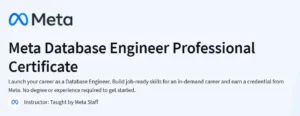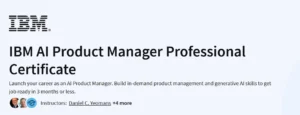What will you learn in Quick Start with Kubernetes Course
Understand Kubernetes fundamentals, architecture, and core components
Learn to deploy, scale, and manage containerized applications
Master key concepts like pods, services, deployments, and namespaces
Use kubectl and YAML to control clusters and troubleshoot issues
Build a strong foundation for working in cloud-native environments
Program Overview
Module 1: Introduction to Kubernetes
⏳ 1 week
Topics: What is Kubernetes, why use it, key concepts, architecture overview
Hands-on: Set up a local Kubernetes cluster using Minikube or Play with K8s
Module 2: Pods, Containers & Labels
⏳ 1 week
Topics: Pods, multi-container pods, labels, selectors
Hands-on: Create and run single and multi-container pods with labels
Module 3: Deployments & ReplicaSets
⏳ 1 week
Topics: Deployments, updates, rollbacks, scaling apps
Hands-on: Configure deployments and perform scaling using
kubectl
Module 4: Services & Networking
⏳ 1 week
Topics: ClusterIP, NodePort, LoadBalancer, service discovery
Hands-on: Expose applications via Kubernetes services and test networking
Module 5: ConfigMaps & Secrets
⏳ 1 week
Topics: Environment variables, injecting configs, securing sensitive data
Hands-on: Use ConfigMaps and Secrets to manage environment settings
Module 6: Namespaces & Resource Quotas
⏳ 1 week
Topics: Multi-tenancy, namespaces, resource quotas, limits
Hands-on: Create and manage namespaces with resource restrictions
Get certificate
Job Outlook
Kubernetes is essential for DevOps, Cloud, and Site Reliability Engineering roles
High demand in cloud-native infrastructure, especially with Docker and CI/CD
Common roles: Kubernetes Engineer, DevOps Engineer, SRE, Cloud Engineer
Salaries typically range from $100,000 to $160,000+ depending on experience
Specification: Quick Start with Kubernetes Course
|
FAQs
- Designed for beginners, though basic Docker/container familiarity helps.
- Starts with Kubernetes fundamentals, architecture, and key concepts.
- Hands-on labs guide learners in setting up clusters with Minikube.
- Gradually introduces pods, services, deployments, and namespaces.
- Prepares learners to confidently manage simple clusters and workloads.
- Hands-on exercises include creating pods, deployments, and services.
- Teaches scaling applications, updates, and rollbacks in clusters.
- Includes tasks using
kubectlcommands and YAML configuration files. - Covers managing namespaces and resource quotas for multi-tenant clusters.
- Prepares learners for real-world cloud-native and containerized environments.
- Prepares for roles like Kubernetes Engineer, DevOps Engineer, or SRE.
- Builds foundational skills for cloud-native infrastructure and CI/CD pipelines.
- Emphasizes practical cluster management experience sought by employers.
- Aligns with industry standards for container orchestration.
- Supports salary growth, typically ranging from $100,000 to $160,000+.
- Focuses mainly on beginner-level cluster management and orchestration.
- Does not cover Helm, operators, or advanced monitoring in detail.
- Introduces core components like pods, deployments, and services thoroughly.
- Provides strong foundation before exploring advanced Kubernetes topics.
- Ideal for learners seeking quick onboarding into container orchestration.
- Teaches deployment and management of containerized applications.
- Covers networking, scaling, and configuration of clusters.
- Hands-on labs simulate scenarios commonly encountered in cloud projects.
- Prepares learners to troubleshoot and manage Kubernetes workloads.
- Provides confidence to contribute to cloud-native and DevOps projects.





